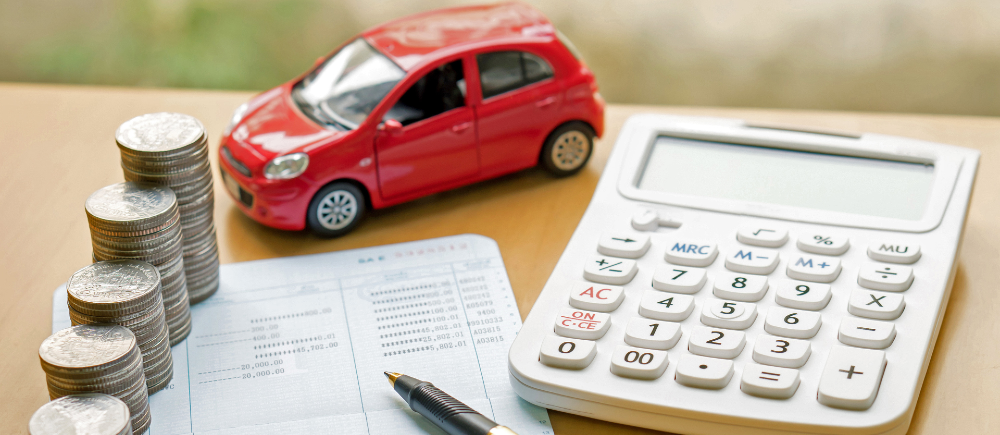Car financing isn’t everyone’s cup of tea. But it can offer an attractive opportunity to get into your dream car sooner, and more cost effectively, compared to paying in one up-front lump sum. The problem is, it’s so complicated! Long-term Re:Fueler, Giles Burden, has spent the last 28 years in the finance sector – of which 13 have been spent in automotive finance. So, to kick off our new Re:Fuel Mythbusters Series, we thought we’d ask him to explain.
So everyone, meet Giles.

‘Hi, I’m Giles Burden and I work for a Finance company that’s owned by a motor manufacturer, we own 4 core marques/brands that you would see on your high street or industrial estate. Im not mentioning the brand so that I don’t have to go through their marketing team with this article!
I have 13 years’ experience in vehicle finance along with a further 15 years’ experience working for a well-known credit card company. I currently fund customers’ vehicle purchases, used car stock for dealers, parts department stock and dealership construction projects. My current role is a Regional Finance Manager with responsibility for 22 dealerships.’
Impressive, right lets get stuck in!
1. What actually is vehicle finance?
Basically, using someone else’s money in order to buy a vehicle that the consumer doesn’t want to pay for outright, and paying a small charge for the privilege of using their money: an interest rate.
2. How does it work?
The “finance house” buys the money in the open market or from its investors, and they lend it to the consumer in order to purchase a vehicle (the vehicle remains collateral). The “finance house” then charges a rate of interest that is higher than the one they paid to borrow it. So the finance house is a consumer-facing third party (otherwise known as “the middle man”). They have to employ underwriters, marketeers and customer services staff in order to restrict its bad debt exposure and promote its activity, yet is only working on a slim margin between the cost of funds and the retail APR interest rate.
For the consumer this, in simple terms, means you pay the money back over a 24-60-month period in monthly instalments instead of paying for the car in one lump sum.
3. What’s a PCP?
Personal Contract Purchase (PCP) is a finance solution designed to allow consumers to change their car every two or three years with monthly payments structured to meet your budget. An initial deposit is paid of between 0% and 40% of the vehicle price, followed by fixed monthly payments over a term of 25, 36 or 48 months. The finance house will agree with you an estimated annual mileage limit, between 6,000 and 30,000 per year. This will help determine the Guaranteed Future Value (GFV) of your vehicle so that at the end of the agreement you just choose one of the following options:
- Make a final payment to repay the GFV and own the car (you can refinance this)
- Return the car to the finance house clearing the GFV
- Part exchange for a new vehicle, using any equity as a deposit in a new contract
4. What is HP?
Hire Purchase (HP) is a more traditional finance solution that is used in many industries, also known as a Conditional Sale Agreement. You just calculate the total amount of interest over the term of the agreement, add it to the amount being borrowed and divide it into even monthly payments over 24-60 months. You own the car after making the final payment.
It’s simple, but it often means taking the finance over a longer period to keep the payments manageable.
The added benefit of halves and thirds is useful in HP contracts, this basically allows you to have stronger rights to hand the car back once you’ve paid over half of the borrowed amount….. a subject to expand on for another day!

5. Which option would be best for me?
Everybody’s circumstances are different and we haven’t yet discussed Contract Hire, Finance Lease, company purchases, etc. However, the vast majority of people will suit a PCP contract, as it gives you more flexibility to later pay off the GFV by extending it into an HP contract if you wish to keep the car.
In my business, 80% of our car finance sales are now on a PCP.
6. How can I insure I get the best deal?
Annual Percentage Rates (APR) are a key benchmark for what borrowing the money will cost you if you run the finance agreement to the end of its term. But it’s worth adding in the quality of the company you are borrowing from and their approach to customer service.
If you ever have trouble sleeping, ask me to explain the APR rate calculation to you! But in very simplistic language, its approximately double the flat rate of interest, which is actually where the amount you pay is calculated.
Ensure the sales outlet is FCA registered and explains the rights you have. They should also ask you some questions before selecting the best finance agreement for you, known as “Demands and Needs” questions.
The better your credit score, the better rates you’ll be offered by finance companies. I think Credit Scores could be a whole other article too!
Be aware that when you buy a vehicle, the seller will have a partner finance house and will earn commission from the finance he sells you, this can give the seller some flexibility on APR rates he’s charging but this is now heavily controlled by the FCA regulations.
7. Can you finance any car, even classics?
Yes, absolutely. Different finance houses will specialise in different niche markets; some for classics, some for supercars, etc.
On older classic vehicles you will often be offered less product choices and sometimes directed to a personal loan rather than a PCP.
8. What is a balloon payment?
On a PCP or a Finance Lease agreement you have a portion of the borrowed money put to one side as a GFV (remember that’s Guaranteed Future Value) or “balloon”. The monthly payments don’t reduce this balance, although it does incur interest. You then decide at the end of the contract what you want to do with that outstanding balloon. You can pay it off, refinance it or hand the car back on a PCP.

9. What if I don’t make all my payments?
This is a big topic and brings in the earlier mentioned quality of the lender and their view on customer service, I’ll detail below my own companies’ friendly approach:
Missed the payment date, we will phone and remind you – 2nd and 3rd phone calls are made, followed by a letter
Missed the 2nd month in a row, we will ring & write again
If no response, we will advise the national credit reference agencies of a missed payment (Experian & Equifax are the main 2 companies)
Missed the 3rd & 4th payment and not been in contact, it will be passed to a debt collection agency.
Your credit score is now dropping.
After 6 months of missed payments we will be repossessing the vehicle, your credit score will be significantly affected. This may involve court processes dependent on how far through the agreement you are.
BEWARE – If you picked the cheapest lender and you’d never heard of them…… they may well jump to repossessing the car and damaging your credit score much earlier than 6 months.
10. What’s the one piece of advice you’d give to someone looking at vehicle financing?
I can’t restrict it to just one! Sorry
- Choose a company who talks about the FCA regulations and explains your rights
- Don’t commit to a monthly payment you can’t afford
- Use loan calculators to benchmark the cost of borrowing for your credit score
- Worried about your score….use one of the credit score agencies like Credit Expert
- Be aware of the FCA protections for consumers https://www.fca.org.uk/
Useful information there from Giles. If you have any other questions please email them to george@re-fuel.co.uk and we’ll see if we can get Giles to address them for you.